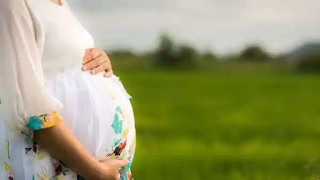Covid during pregnancies can turn out to be dangerous. Here's how coronavirus can affect the fetus
"While hemorrhages do occasionally occur in developing brains, it is extremely unusual for there to be this many instances within a 21-month period," says neurobiologist Katie Long from King's College London in the UK, as reported by Science Alert.
"It is now of the utmost importance that we follow up with children that were prenatally exposed to COVID-19 so that we can establish if there are any long-lasting neurodevelopmental effects."
For the study, the team examined a total of 661 fetal tissue samples that were collected between July 2020 and April 2022 and they noticed hemorrhages in 26 of them, and surprisingly COVID-19 was present in all of the tissue samples. All the samples were collected from electively terminated pregnancies.
Since coronavirus was confirmed in the fetus tissues, it can be assumed that it was passed to the fetus from the mother. However, whether the hemorrhaging was a direct consequence of the mother's COVID or the fetus's infection – or if the relationship involves some unknown factor – isn't clear.
The study also identified signs of hemorrhaging were from the late first and early second trimester of gestation. This means the fetal brain can be affected at the earliest stages of its development.
"We know that severe viral infection may influence the fetal brain, but this important study is the first to suggest that this may occur in pregnancies affected by COVID infection," says physiologist Lucilla Poston from King's College London. Poston was not involved in the study.
"Whatever the cause, a direct effect of the virus or an indirect consequence of maternal infection, this study highlights the need for pregnant women to be vaccinated against COVID-19, thus avoiding complications for both mother and baby."
During the study, traces of SARS-CoV-2 were also detected in tissue samples taken from the placenta, amnion, and umbilical cord, suggesting that there's the potential for further complications to be caused by the presence of COVID-19.
For the study, the team examined a total of 661 fetal tissue samples that were collected between July 2020 and April 2022 and they noticed hemorrhages in 26 of them, and surprisingly COVID-19 was present in all of the tissue samples. All the samples were collected from electively terminated pregnancies.
Since coronavirus was confirmed in the fetus tissues, it can be assumed that it was passed to the fetus from the mother. However, whether the hemorrhaging was a direct consequence of the mother's COVID or the fetus's infection – or if the relationship involves some unknown factor – isn't clear.
The study also identified signs of hemorrhaging were from the late first and early second trimester of gestation. This means the fetal brain can be affected at the earliest stages of its development.
"We know that severe viral infection may influence the fetal brain, but this important study is the first to suggest that this may occur in pregnancies affected by COVID infection," says physiologist Lucilla Poston from King's College London. Poston was not involved in the study.
"Whatever the cause, a direct effect of the virus or an indirect consequence of maternal infection, this study highlights the need for pregnant women to be vaccinated against COVID-19, thus avoiding complications for both mother and baby."
During the study, traces of SARS-CoV-2 were also detected in tissue samples taken from the placenta, amnion, and umbilical cord, suggesting that there's the potential for further complications to be caused by the presence of COVID-19.




No comments:
Post a Comment